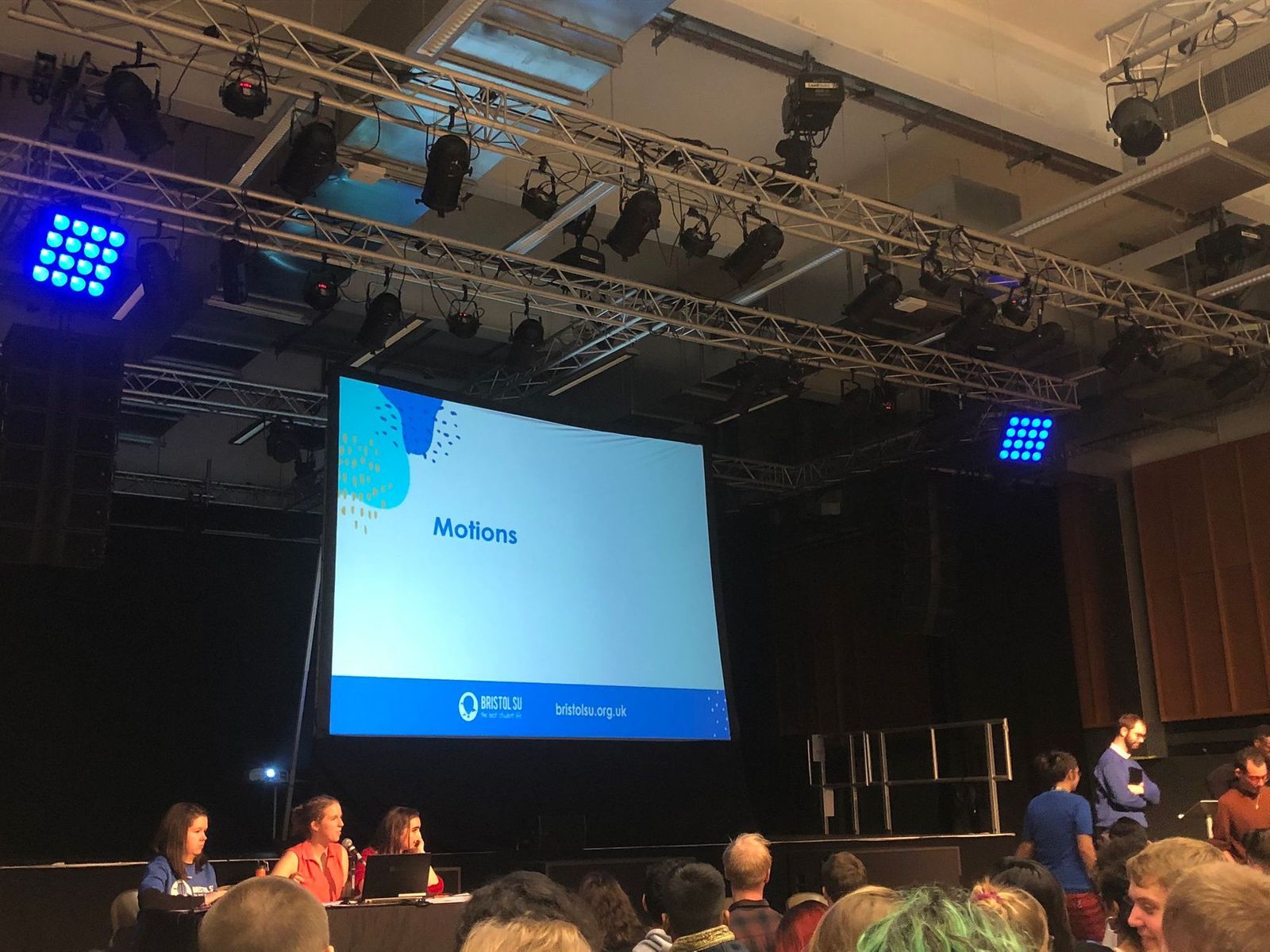By Alex Berry, Third Year Ancient History
With the recent elections, the Annual Members Meeting and the handling of Bristol’s students during the national lockdown, the University of Bristol Students’ Union has been extremely busy and present in our lives and indeed our email inboxes.
The Annual Members Meeting (AMM) which took place on the 2nd March 2021 over Zoom, held the discussion and voting for or against several motions including an Antisemitism Awareness Week (passed), the establishment of a Student Tenants Union (passed) and the proposal for a cap on private school admissions, which failed to be ratified by the SU.

According to the official proposal, the main purposes for the cap included the university’s long history of criticism for its arguably unfairly weighted intake of students with private education, with it ranking at 113th out of 116 Universities for social inclusivity in The Times Good University Guide 2021, which the motion argues ‘does not accurately represent some of the great work being done by the University to promote access.’
The motion, proposed by James Fishwick, also sought out the establishment of a more comfortable environment where all students feel welcome and included, and one where the university’s population is more representative and proportional.
Although the motion was proposed independently by Mr Fishwick, we got in touch with The 93% Club, a student group which aims to represent and improve the experiences of state school students at UoB, to see what they thought about the motion and indeed, its outcome. The club’s President, Alice Bassett, commented that, ‘It was significant in encouraging important conversations on how factors like education and personal background can impact experience and fair access to opportunities both during university and beyond.’
— The 93% Foundation (@The93Club) March 15, 2021
Even though the motion failed to be put through by the SU, it has definitely sparked up necessary discussion around the issue, which may assist possible future proposals of a similar nature. However, while the proposal helped to raise awareness and attention around the topic, the need for it and indeed its failure highlighted for Bassett that, ‘Bristol still does have a major problem with social inclusion.’
It is important to clarify that the motion was not proposed by The 93% Club, as their mission is focused more specifically on levelling the opportunity playing field for students from state school backgrounds, aiming to represent them sufficiently and improve their overall experience, rather than on the admission of future Bristol students.
The conversation is without doubt, necessary, given the University of Bristol’s disproportional admission of students from private school backgrounds, with the year 2019/2020 recording 34 per cent proportion of students with private/independent education. This is a far cry from the national average (just over 7 per cent of students in the UK attend private school).
The application and admission process to university is stressful and competitive enough, and it seems unfair that judging by the statistics, there is an even higher hurdle to jump, and one which for 93 per cent of the student population, simply may not be conquerable. It’s one thing comfortably holding your place as a UoB student and finding yourself in the Brass Pig smoking area, involved in an unfamiliar conversation about tweed, ski holidays and a wealthy inheritance, but it is a much darker and more sinister concept to accept that many students, for reasons totally out of their control will be systematically discriminated against and possibly not even allowed the opportunity to study here. It is a cruel combination of financial privilege, severely unequal opportunity and bad luck, and it is certainly for many, a cause for concern.
Students to vote on a motion to cap private school admissions at SU AMM meeting
Opinion | Social inclusion is still a problem at the university
Looking forward, Bassett noted how vital it is that we continue these conversations, as they are crucial for deepening our understanding of each other’s experiences at university. Perhaps despite its failure at the AMM, Fishwick’s proposal will serve well as a springboard for future discussions and motions, and will perhaps raise awareness and support for Bristol’s 93% Club, as state school students of now and the future begin to dismantle the system that is, and always has been weighted against them.
What do you think about the motion failing?
Featured Image: Image depicts Sophie Pender, founder of The 93% Club. | Photo taken by Graeme Robertson / The Guardian








